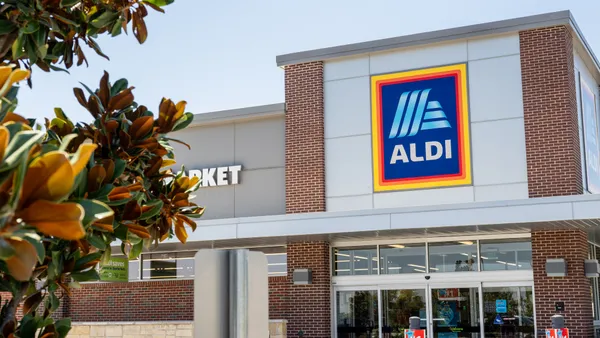Dive Brief:
- Instacart contractors began a planned protest yesterday that will last through Nov. 5. A contractor named Vanessa Bain published a blog post on Medium on Oct. 9 calling for the protest to take place.
- The core issue for the contractors, called shoppers by Instacart, in this case is Instacart’s tipping policy. According to the blog post on Medium, shoppers want to see Instacart raise the default tip amount from 5% to 10%, as it was originally back in 2016.
- In a statement emailed to Grocery Dive, Instacart said, "We take the feedback of the shopper community very seriously and remain committed to listening to and using that feedback to improve their experience."
Dive Insight:
Instacart continues to find itself under fire from contractors over pay and labor. In this latest round, the controversy centers on the company's current tip policy where the default amount is set to 5% of the order total, which customers can raise or lower to any amount of their choosing. The shopper gets 100% of the tip a customer leaves.
"We are demanding that Instacart restore the default tip amount to at least 10% and to remove the confusing 'service fee' which the company pockets for themselves," Bain wrote on Medium.
The existing service fee, which shoppers want to see eliminated, is used to cover costs such as insurance, background checks, customer support and other operating costs.
In another instance last week, 200 Instacart shoppers signed a letter to call out the company's chief communications officer Dani Dudeck for recent "tone-deaf" comments around women in the workplace. And in October, the company settled allegations with gig workers in California for $11 million after claims that Instacart didn't reimburse drivers for vehicle costs associated with deliveries.
An open letter on Reddit posted Nov. 1 said this is the fourth consecutive year of walk-offs for Instacart shoppers. Buzzfeed also reported a protest during Thanksgiving last year, and Fast Company covered a similar effort in 2017. Low wages are the recurring issue.
Instacart can now reach 80% of U.S. households and has a valuation of $7 billion in spite of disgruntled workers, but its reliance on contractors puts it in the middle of one of the biggest labor issues: the treatment of gig workers. California, where Instacart is based, is currently leading the charge, recently signing into a law a new worker classification test, which makes it harder for employers to establish that workers are independent contractors.
While this particular strike at Instacart so far appears to have had minimal impact on Instacart’s customers, continued labor issues and backlash from its shoppers can be detrimental for the brand long-term.










